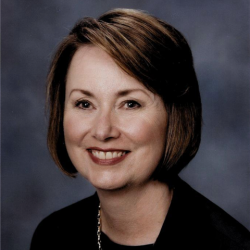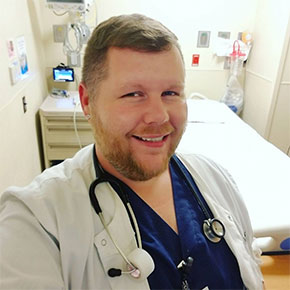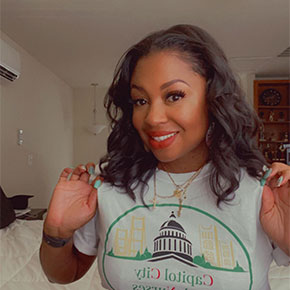How Real Nurses Paid for Nursing School



Decisions, decisions. Which nursing career do you want to pursue? What program? Which school? And how will you pay for it? The U.S. Bureau of Labor Statistics (BLS) reports RNs with a bachelor’s degree earn a median annual salary of $86,070, with the lowest 10% earning less than $63,720 and the highest 10% earning more than $132,680. The BLS also projects employment of nurses to grow 5.6% through 2032, a little faster than average for all occupations. There will be about 195,400 new nursing positions through 2032, making nursing a promising career with good job prospects.
The market looks strong, but figuring out how to pay for nursing school is a top concern for many nurses. According to a student debt report by the American Association of Colleges of Nursing (AACN) in 2017:
- 69% of nursing graduate students took out student loans for graduate school
- 76% had taken out loans for undergraduate degrees
- 50% expressed concern about the ability to afford monthly student loan payments after graduation
We checked in with three experts—those in-the-know because they lived it—to find out how they have addressed the financial aspects of nursing school. These are their stories.
Snapshot: Damion Jenkins, RN, MSN
CEO, The Nurse Speak

Few can explain “critical thinking,” as it is tested in the NCLEX, better than Damion Jenkins—and that’s only one of his accomplishments. Based in New York City, Jenkins, 40, is a nursing business owner, an educational consultant, an NCLEX expert, a staff development specialist, and a clinical education specialist. He currently works remotely part time for a large hospital group in Baltimore, Maryland, and runs his business full time.
Preparing for School
Jenkins’ secret to success: ask for help. “Since I was the first person in my family to pursue a college education, I didn’t have much experience or guidance to help me prepare for this. I spent a LOT of my time in the financial aid office speaking with advisors who helped me learn about my options. There were days when I felt I was running in circles trying to wrap my head around the process. I found the staff in the financial aid office to be of tremendous help! I learned about filing for FAFSA (Free Application for Federal Student Aid), Pell Grants, and Stafford Loans. I learned how to budget for repayment, and what taking out loans for school would entail. All of this preparation was provided directly by the school—which was a major blessing for me, as I was clueless on where to start.”
Paying for School
“Nursing is a second career for me; I went to college later in life. Most of my (associate degree) nursing program was covered by Pell Grant money. I was a waiter and picked up additional shifts to supplement the expenses that were not covered by grant money. Towards the end of my senior semester, it was getting really tough to pay rent, pay for school and keep up with my studies. I actually relied on the generous support of friends, who provided me with inexpensive living arrangements, so I could spend more time studying and less time working. Honestly, if it weren’t for my friends, I might not have been successful in completing my program.”
Resources
“Back when I went to nursing school, I had to manage my money the old-fashioned way—with a checking account and a checkbook. I worked hard to keep track of my cash tips from my part-time job, as well as all of my expenses. I made sure that my balances reflected how much grant or loan money I had and what I could afford to spend each month so that I knew when I had room to splurge and treat myself, or when to pinch my pennies so I could pay my bills. Keeping tuition, books, lab fees and all of that up to date was my priority, and I was so laser focused during that time. I counted every single cent I had in my accounts (and in my coin jar). Today there are so many resources out there that can help you track and manage your money—and most banks have pretty awesome online apps that do it all.”
Advice
“Have a plan and stick to that plan to the best of your ability. There are lots of resources out there that can help you budget for school, such as financial aid office staff. If you can, save money to cover unexpected expenses or a loss of income if you need to cut back on hours so that you can focus on your studies. Save a portion of your grant or loan money and begin repaying loans earlier, covering living costs, or investing in career start-up costs such as licensure fees, exam fees, and uniforms.”
Support and Inspiration
Topping the list of supporters is Jenkins’ family: his husband, their two kitties, and their extended families not far from New York City and in Louisiana. “Many people in my life helped inspire and motivate me to pursue a career in nursing! It all started with my good friends Cathy and Phil,” Jenkins explains. “Cathy and I worked at the same restaurant for years before I went to nursing school—her husband, Phil, was a nurse in the OR at Johns Hopkins.” After listening to Phil’s stories, Jenkins knew that he had found his true calling. “In nursing school, I had many professors, instructors and even classmates that continued to validate my decision” he says. “I feel very blessed to have found a career that provides me with so much passion and drive!” As for the friends who helped with living arrangements so he could spend more time studying, “I am forever grateful for them.”
Snapshot: Chardé L. Vance, LVN
Licensed Vocational Nurse

Chardé Vance is a busy licensed vocational nurse (LVN) at a post-acute rehab facility. She’s also an elementary school nurse. “I’m always eager to help others with information,” she says. In addition to her LVN education, she also holds an associate degree in nutrition science—and she’s not done with school yet. “I want to continue my education down the road and attend an RN program,” she says. She posts as @chardaily on social media.
Preparing for School
Before starting nursing school, Vance and her husband spent time learning about budgeting and money management. “Prior to enrolling in nursing school, I had obtained a degree and had student loan debt. A year before I enrolled in nursing school, my husband and I paid off our cars and decided to go debt-free.”
Paying for School
“I chose to enroll in a private nursing program that was a lot more costly than a traditional nursing program. Choosing to attend nursing school as a second career option left me with limited resources for paying for nursing school.” After careful consideration, Vance applied for a loan. She also received a scholarship that helped cover the cost of school and supplies. “I did worry about living expenses, gas, and childcare … but knew that whatever we borrowed, we could pay it off after I graduated as long as we stayed disciplined.”
Resources
Vance and her husband went debt-free by following Dave Ramsey’s 7 Baby Steps program. “This helped us gain a better relationship with money and the way we spend.” With the Baby Steps tools, Vance learned about saving money, setting goals, and budgeting for expenses.
Advice
“Investing in yourself is the best investment you can make.”
Support and Inspiration
Vance’s natural energy gets a boost from the support of her husband, caring for others, and working with groups like the Capitol City Black Nurses Association.
Snapshot: Julia Martir, LVN
Student (working at a skilled nursing facility)

Julia Martir, 24, is enrolled in an LPN-to-BSN bridge program at a private university. With school, work, and a new baby, her schedule is hectic—and she loves it. She posts on social media as @nursingbuddyjules.
Preparing for School
Martir established a savings account to provide a cushion and saved a significant sum. “I took a break from school and worked to save up enough money to be comfortable. I wanted to go back to school with at least some of my stress alleviated so I could enter with a clearer and more optimistic mindset. I want to be open about that because it was very hard to save that much. In the bigger picture, it isn’t enough to stop working,” she says, but saving was an important step for her peace of mind.
Resources
“(Vlogger) Aja Dang on YouTube was a big inspiration. She was very vulnerable about how much debt she was in, and paid off about $200,000 of her student loans. Her videos give you breakdowns on how she divides her checks to meet goals and cover expenses, and she gives helpful financial tips. She also released a financial planner to help with budgeting, goal setting, and organization!”
Advice
“Not everyone is in a financially comfortable position. But that doesn’t mean you can’t go to school to further your education. Do what you have to do in order to get through nursing school if this is your calling. You are going to have plenty of debts in your life (a house, a car, etc.); school is another debt that is worth it. Your education is an investment. You are betting on yourself. If you really want this, don’t let the fear of money hold you back. Remember, it is possible; you just need the motivation to do it.”
Support and Inspiration
Martir’s family tops the list of ardent supporters. This includes her partner, Fernando, new baby Kano (age 6 months), and her parents. “Even with my savings, I still lean on my partner and my parents for financial help,” Julie says.




